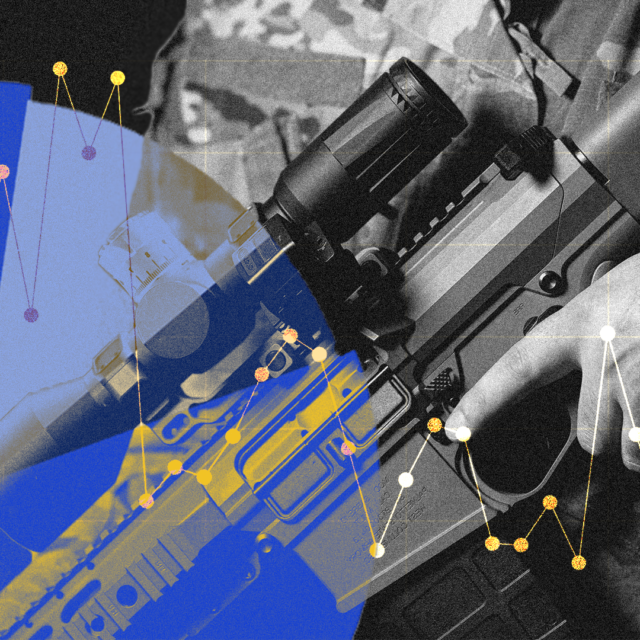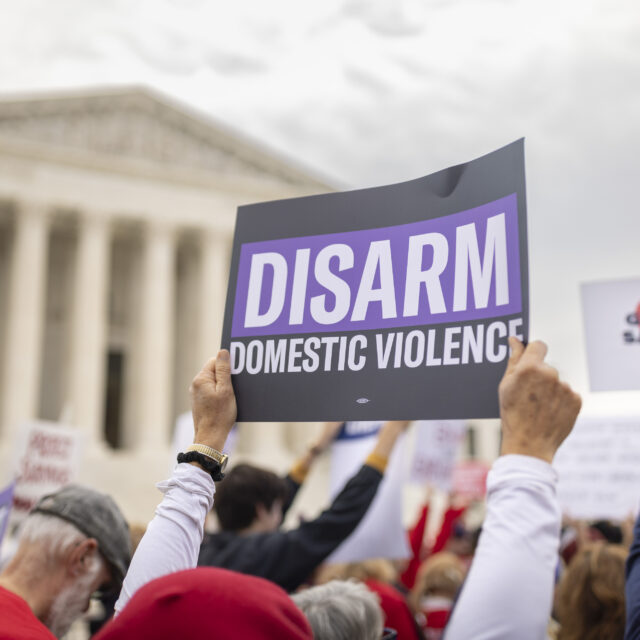Concealed carry permits should be treated just like driver’s licenses. Just like a person licensed to drive in any state, a person allowed to carry a concealed, loaded handgun in any state should be automatically authorized to do so in every other state.
- States set largely identical requirements for driving a car, but dramatically different standards for concealed carry—including on safety training, violent criminal convictions, and even the requirement to get a permit at all.
- States voluntarily recognize each other’s driver’s licenses through compact, while by contrast “Concealed Carry Reciprocity” legislation would force states to recognize other states’ concealed carry standards without basic safeguards.
- Law enforcement can verify out-of-state driver’s licenses, but there is often no way to confirm that an out-of-state concealed carry permit is valid.
Different Standards
Driver’s license standards are largely identical across the country, with license applicants required to meet core public safety standards with very little variation among states. Much to the contrary, concealed carry standards are different in nearly every state.
To obtain an unrestricted driver’s license, U.S. states have largely uniform law. For example:
- Training: You must pass an eyesight test, a road test, and a written test.
- Driving Crimes: You must not have been convicted of vehicular crimes.
- Age: You must be 18 years old, or go through a special license program with restrictions.
Contrary to this basic uniformity in state driver’s licensing standards, concealed carry requirements vary widely among states. For example:
- Training: 19 states do not require carriers to complete some form of safety training, while 31 do.
- Violent Crimes: 27 states disqualify people convicted of certain violent misdemeanors, while 23 do not.
- Age: 16 states allow teenagers to carry, while the balance do not.
- Red Flags: 25 states empower law enforcement to block carry by people with dangerous red flags, while 25 do not.
Key Differences Between Driver’s Licenses and Concealed Carry Permits
Permitless Carry
Every state requires a license to drive a car, but twelve states don’t require a permit to carry concealed handgun in public.
“Concealed Carry Reciprocity” would force every state to let residents of permitless states carry concealed handguns with no permit. That’s like forcing states to let visitors drive on their highways, even though they haven’t passed any test or been screened for DUIs—and don’t even have a driver’s license.
Safety Training
Each state requires drivers to have training—meaning that every state can have confidence in the skills of out-of-state drivers.
No state will issue a driver’s license unless you pass a vision test, a written test, and an in-person road test. By contrast, states vary dramatically in the training required to carry a concealed handgun, including that half require live-fire experience—and 19 states require no training whatsoever.
Verifying Permits
Law enforcement can easily verify driver’s licenses—but may be in the dark with carry permits.
If police pull over an out-of-state driver, they can easily confirm that a driver’s license is valid. But police often have no way to verify out-of-state carry permits: There is no state-by-state hotline, for example, to confirm that a permit is valid.
And unlike with driver’s licenses, “Concealed Carry Reciprocity” would even allow people to carry across state lines with no permit whatsoever—leaving officers with no way to confirm if the person is a law-abiding gun owner.
Under one version of “Concealed Carry Reciprocity,” officers could be sued for even attempting to verify that a person is carrying legally—and officers and local governments could be on the hook for attorneys’ fees and legal damages.
States Decide
States independently agree to recognize each other’s driver’s licenses—they are not forced to do so by the federal government. But “Concealed Carry Reciprocity” would have the federal government force each state to recognize all state’s carry standards.
States have agreed to deny licenses to any applicant with a recent suspension or revocation in any other state. The opposite is true under “Concealed Carry Reciprocity:” A person who has a carry permit denied or revoked in his home state, e.g. after a criminal offense, could simply get an out-of-state permit and carry throughout the US. Under one bill, a denied individual could even carry back at home.
Violent Criminal History
Concealed carry is generally treated as a more serious responsibility than driving—and while driver’s licenses are denied only on the basis of driving ability, many states will disqualify violent criminal offenders from carrying.
States have uniformly decided that a violent criminal history is not relevant for driving. In all 50 states, only a narrow set of dangerous driving and property damage crimes will block a person from having a driver’s license.
Meanwhile, in many states a person is too dangerous or irresponsible to carry after a violent misdemeanor conviction for an assault, threatening, or sex crime. “Concealed carry reciprocity” would force all states to allow violent offenders carry.
Everytown Research & Policy is a program of Everytown for Gun Safety Support Fund, an independent, non-partisan organization dedicated to understanding and reducing gun violence. Everytown Research & Policy works to do so by conducting methodologically rigorous research, supporting evidence-based policies, and communicating this knowledge to the American public.




